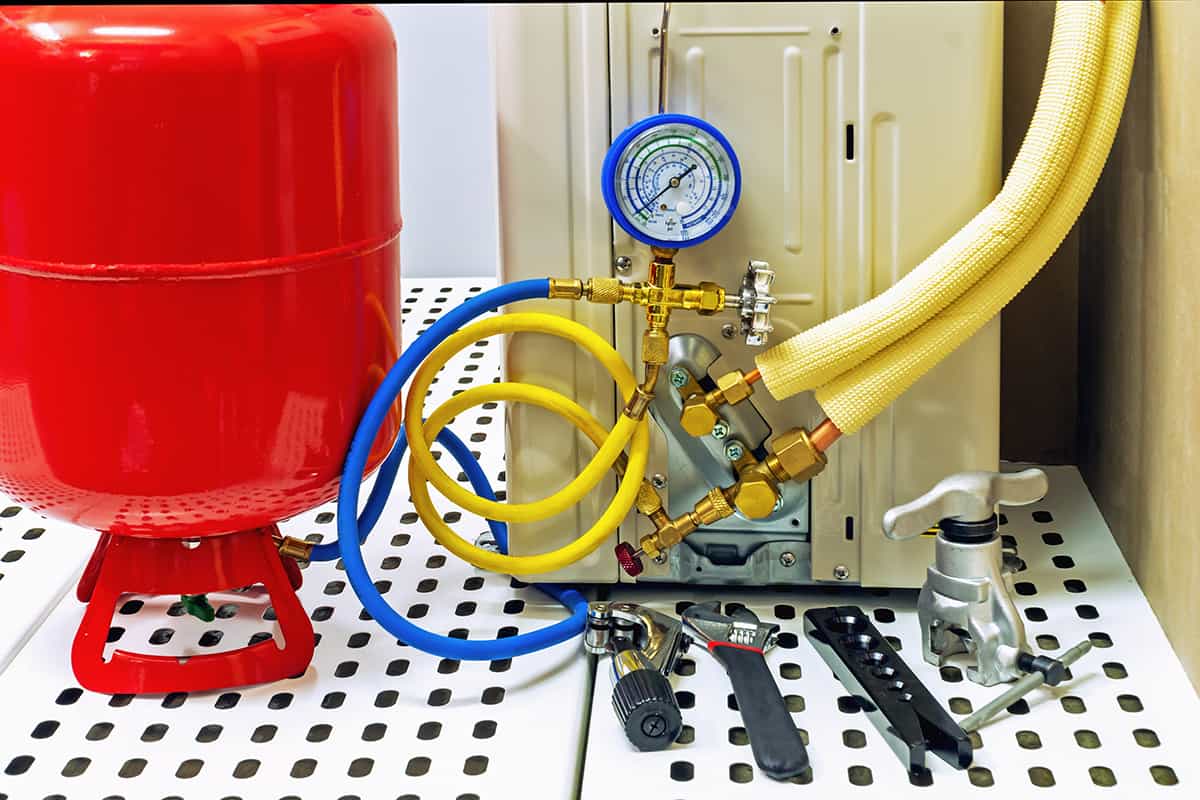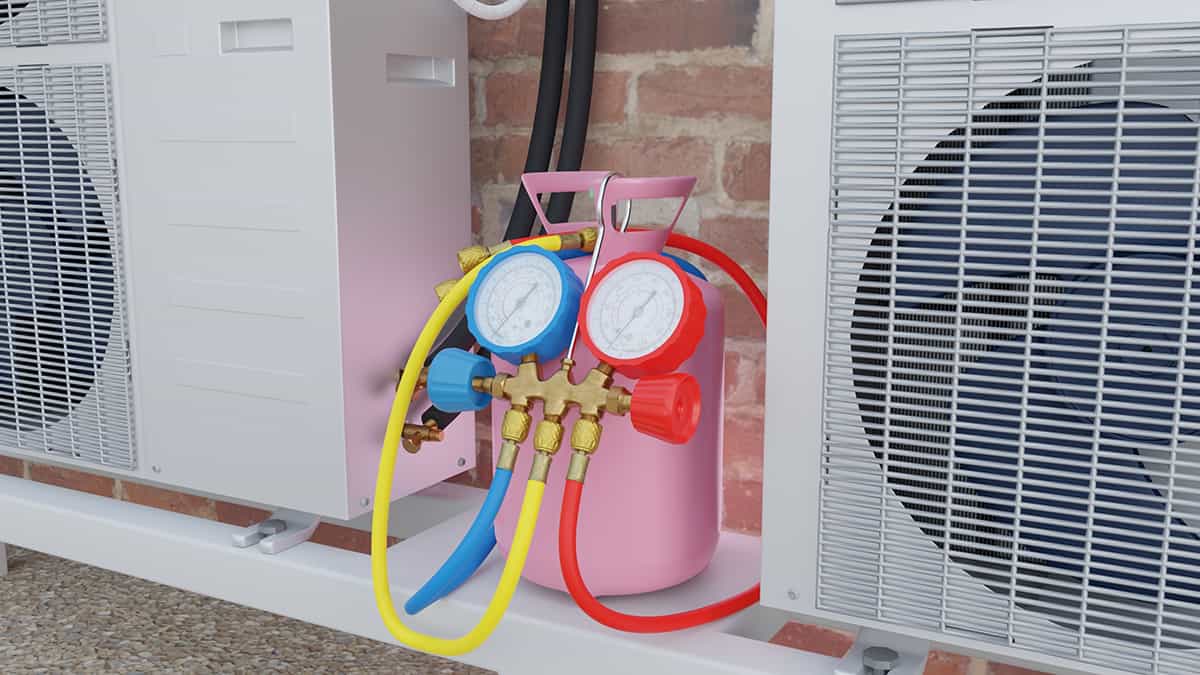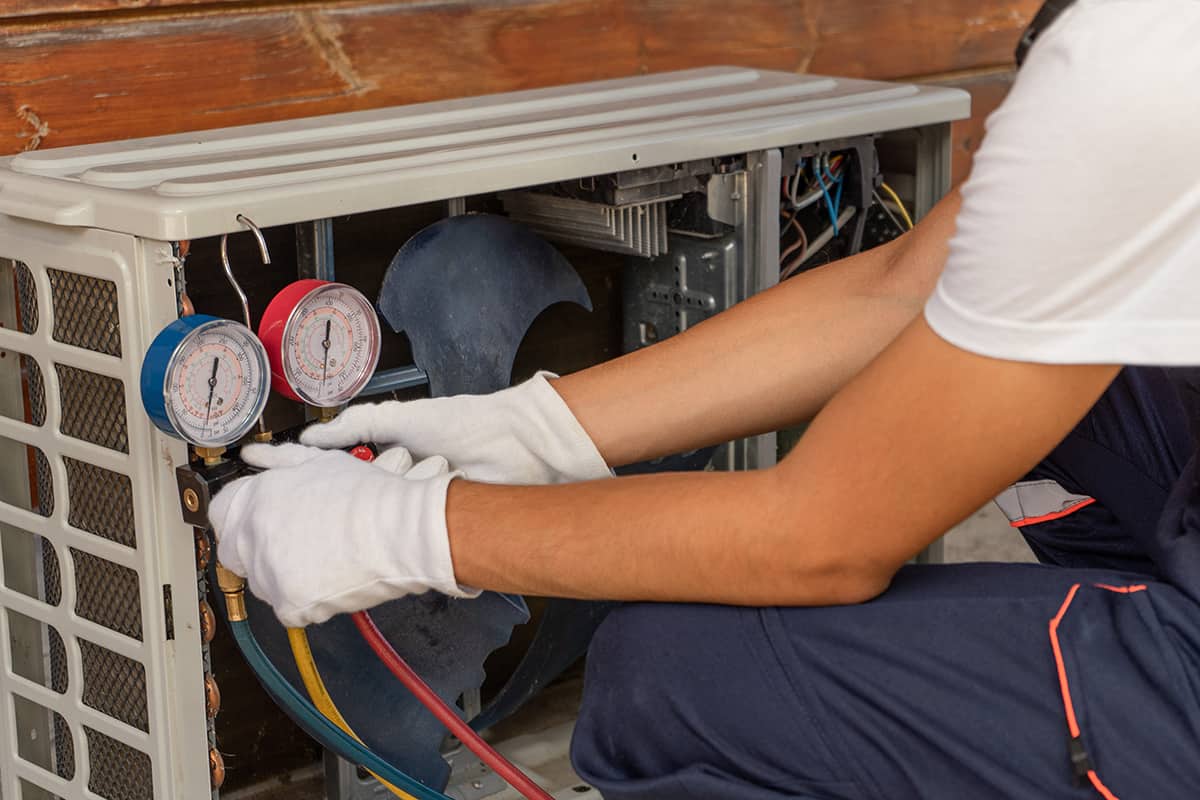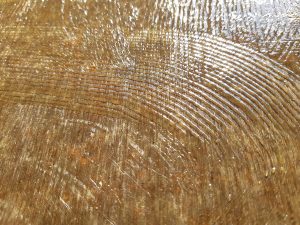If you have heard of refrigerant poisoning, you might be alarmed to know that this is a type of poisoning caused by the chemicals found in common household appliances. Fortunately, accidental refrigerant poisoning is rare.
Here we will look at how Freon leaks happen, how to spot them, and when there is cause for concern.
What is Freon?
Freon is the trademarked name of a group of refrigerant chemical gases that are used in cooling appliances, such as air conditioning units and freezers. The generic name of the most common type of Freon is R-22 refrigerant.
This was widely used from the 1930s until the 1980’s when it was found that the gases were very harmful to the ozone layer and were subsequently confirmed as harmful substances.
Since then, the use of R-22 in new appliances has been made illegal, so if all of your home cooling appliances are modern, then you are unlikely to have any Freon in your home. Appliances manufactured after 2010 are banned from using Freon and instead use a more environmentally friendly refrigerant called R-410A refrigerant.
How Do Freon Leaks Happen?
Freon leaks, or other refrigerant leaks, occur when the appliance in question has been damaged or vandalized. Following an earthquake or hurricane when your appliances may have been disturbed, it is important to check them over to ensure they haven’t become damaged and are leaking Freon.
Unfortunately, Freon and other refrigerants can be used as a means of getting high, so it has been known for addicts to break into the outdoor components of heat pumps or air conditioning units in order to inhale the Freon.
These types of appliances are also targets or thieves who will dismantle the appliances to steal the inner copper pipes, which they will then trade in as scrap metal and get the cash for it. If your appliance looks to have been tampered with, you should get it checked out immediately for leaks.
Signs of a Freon Leak
If you suspect you have a Freon leak, you should stand near to your appliance and listen for a hissing noise. This is a sure sign that Freon is leaking. When doing this check, don’t get too close because direct contact with concentrated Freon can cause frostbite or chemical burns on the skin.
It can also result in a rash on sensitive skin types. Fortunately, if your appliance is leaking Freon, then it will leak heavily and dramatically, which should make it quite easy to detect. You do not need to worry about slow leaks that would be more difficult to detect.
Freon is scentless and tasteless, so you will not be able to smell it if a leak has happened. Instead, look out for common signs that your appliance is experiencing a Freon leak. One obvious sign of a Freon leak, or other refrigerant leaks, is if your appliance is no longer working as it should.
If the air conditioning unit is no longer cooling the air very effectively, or the indoor evaporator coils become frozen, this is a sign that you should stop using the appliances and get them checked over by a professional.
Health Symptoms Associated with Freon Leaks
Most symptoms associated with Freon leaks are mild. Unfortunately, children and pets are likely to suffer from the most severe symptoms because Freon is heavier than air, and therefore it tends to be most concentrated close to ground level where young children and pets will be breathing it in.
If you are experiencing the following symptoms, then it could be linked to a Freon leak or another type of refrigerant gas. These are the early signs of Freon poisoning, which can become more severe if the exposure to Freon is prolonged.
- Dizziness
- Headache
- Vomiting
- Ear, nose, and throat irritation
- Coughing
- Nausea
- Frostbite
- Chemical burn
How Dangerous are Freon and Other Refrigerants?
Most accidental cases of refrigerant poisoning are very mild. If you are experiencing the typical symptoms associated with Freon poisoning and suspect that you have a leaking appliance, you should remove all children and pets from the property and open all of the windows in the home to encourage the toxic air to escape.
There is no need to panic as mild exposure to Freon is not believed to have any serious or long-lasting health implications. Call an engineer to check your appliance for evidence of a leak, and if necessary, have it fixed or replaced.
Consistent exposure to Freon can cause significant health issues and even death, though this is extremely rare in accidental cases and is more common when Freon is intentionally inhaled as a drug to get high. The more severe symptoms of Freon poisoning include:
- Confusion
- Seizures
- Vomiting blood
- Difficulty breathing
- Irregular heartbeat
- Coma
- Death
Freon Poisoning Treatment
If you suspect someone is experiencing Freon poisoning or poisoning from another type of refrigerant, take them straight to the emergency room. There is no medication to effectively treat Freon poisoning; however, the medical team will work to ensure the patient has an oxygen supply and check for internal damage.
In some cases, liquid can build up in the organs that will need to be removed in order for the patient to recover.
Freon Leak Prevention
Freon in appliances is very easy for people to access, should they want to use it to get high. To help prevent this, you should secure any cooling appliances you have and lock away any spare refrigerants you have in storage to prevent access.
Unfortunately, there is no way to prevent an accidental Freon leak, and instead, the best course of action is simply to be vigilant and regularly check your appliances for signs of a leak.
Knowledge of the common signs of a Freon leak is important so that if anyone in your family starts to exhibit these symptoms, you know what to do. Typically you can expect that children and pets will start to develop symptoms before adults.








